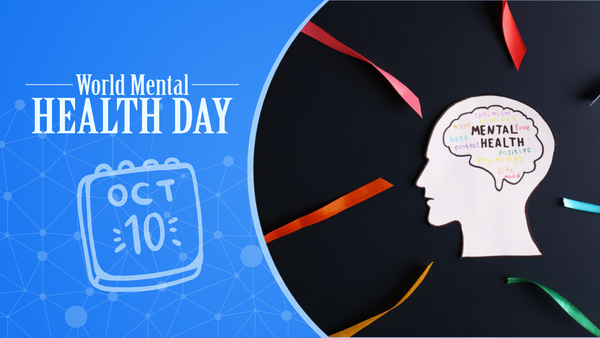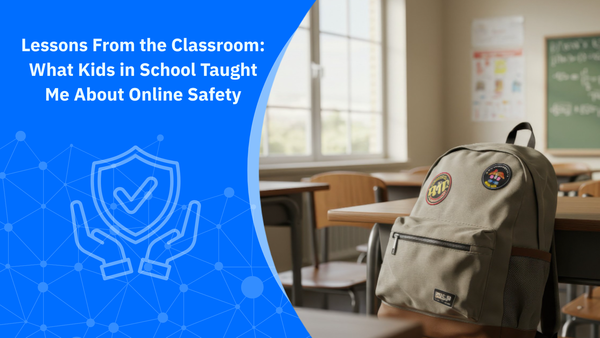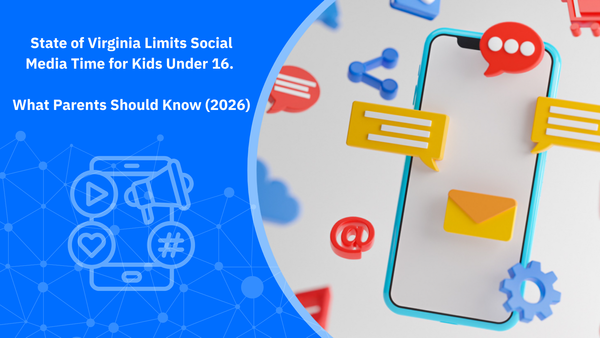When Crisis Meets Chaos: How AI-Generated Fake News and Disaster Scams Undermine Mental Health

‘Fear is the mind-killer.’
The timeless line from Dune captures a truth that both psychology and cybersecurity know well: fear paralyzes logic. When panic takes over, we’re less able to think critically or make rational decisions.
And that’s precisely what scammers, cybercriminals, and malicious actors count on. In moments of chaos, natural disasters, wars, or global emergencies, they weaponize fear. They flood our feeds with false alerts, fake donation appeals, and AI-generated “breaking news” designed to push us into acting without thinking. Fear isn’t just emotional manipulation. It’s a tool of control.
Every year on October 10, World Mental Health Day reminds us to care for our minds amid uncertainty. This year’s World Health Organization’s theme, “Mental Health in Humanitarian Emergencies,” emphasizes that protecting mental well-being is just as vital as ensuring physical safety during disasters.
In 2025, that mission extends online. As catastrophes unfold, so do waves of AI-generated misinformation, deepfakes, and digital scams that erode trust, heighten anxiety, and drain mental resilience when people need it most.
Mental Health Is Essential in Emergencies
The World Health Organization (WHO) estimates that about 1 in 5 people in crisis situations develops depression, anxiety, PTSD, or another mental health condition. During disasters, these needs are often overshadowed by immediate survival concerns. WHO calls for mental health and psychosocial support (MHPSS) to be woven into every emergency response, ensuring continuity of care for the most vulnerable — including displaced families, children, and the elderly.
But even with professional care, the information ecosystem surrounding disasters can fuel distress.
The Mental Toll of Doomscrolling Through Disaster
As Harvard Health explains, doomscrolling keeps our stress circuits firing nonstop. It activates the amygdala, floods the body with cortisol, and disrupts sleep, focus, and appetite. Prolonged exposure to negative content can even cause headaches, digestive issues, and muscle tension.
Harvard experts warn that this endless stream of fear and outrage can leave us feeling helpless and detached from reality. In times of crisis, when information changes rapidly, doomscrolling deepens anxiety and clouds judgment — making us more susceptible to emotional manipulation and online deception.
AI-Generated Misinformation and Disaster Scams
Artificial intelligence supercharges the spread of misinformation and how convincingly lies can be dressed as truth. In the aftermath of disasters, AI is now used to:
- Create fake evacuation orders or fabricated “breaking news”
- Generate deepfake videos or images of disaster victims or collapsed buildings
- Clone voices of aid workers or officials to make fraudulent appeals sound real
- Amplify disinformation via bot networks to increase reach and legitimacy
Bitdefender has uncovered such patterns — including fake donation campaigns after the Japan and Turkey–Syria earthquakes, and even the war in Ukraine, where scammers exploited compassion to harvest money and data.
The consequences of these digital manipulations are not only financial. Victims often report:
- Shame and self-blame after falling for scams
- Erosion of trust in institutions, charities, and legitimate media
- Anxiety and vigilance, constantly fearing new attacks
- Compassion fatigue, where repeated exposure to tragedy numbs empathy altogether
You may also want to read:
How to Protect Both Mind and Data
1. Manage Fear and Reduce Doomscrolling
- Keep your phone away from your bed and turn off nonessential notifications.
- Limit news checks to specific times each day.
- Choose reputable outlets and avoid sensational or anonymous sources.
- If anxiety spikes, step back — take a walk, breathe deeply, or ground yourself in the present.
2. Verify Before You Act
- Cross-check information with trusted sources like the Red Cross, the WHO, or local authorities.
- Use tools like Bitdefender Scamio and the Bitdefender Link Checker to test suspicious donation links or emergency pages.
- Be wary of emotionally charged messages urging immediate action.
3. Build Resilience Through Routine and Support
According to the NHS, routines create stability in uncertain times. Focus on what you can control, reach out for social support, and practice mindfulness or gratitude. Small habits — such as regular meals, rest, and movement help rebuild mental grounding and counteract stress.
4. Stay Cyber-Safe
- Keep your devices protected with reputable security software.
- Use strong, unique passwords and enable multi-factor authentication.
- Never download attachments or click on links from unknown senders — especially during emergencies.
So this World Mental Health Day, remember that protecting your peace of mind also means protecting how you engage with information. Guard your empathy, verify what you read, and let calm — not fear — guide your clicks.
tags
Author
Alina is a history buff passionate about cybersecurity and anything sci-fi, advocating Bitdefender technologies and solutions. She spends most of her time between her two feline friends and traveling.
View all postsRight now Top posts
How Do You Manage Your Passwords? We Ask Netizens
December 18, 2025
Cybercriminals Use Fake Leonardo DiCaprio Film Torrent to Spread Agent Tesla Malware
December 11, 2025
FOLLOW US ON SOCIAL MEDIA
You might also like
Bookmarks







